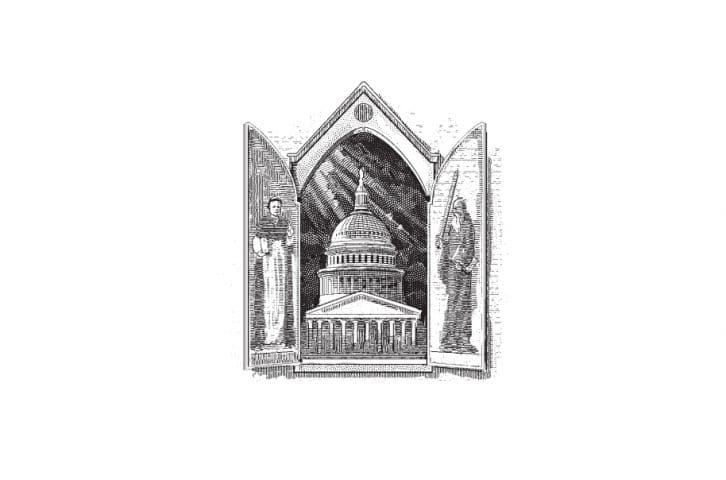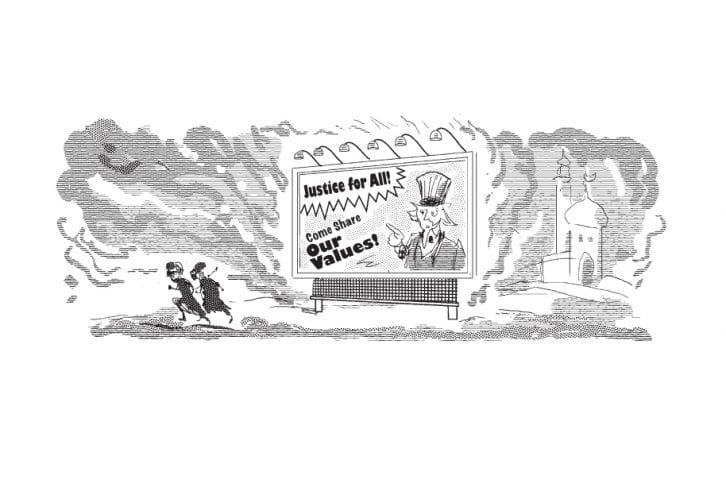Congress’s comprehensive Immigration Reform Bill demonstrates, once again, the distance between ordinary Americans and the country’s elites. Let us for a moment not worry about the health of the economy or the justice of kicking out the millions of illegal aliens we have let in with a wink and a nod. There will be plenty of time for those concerns in the months ahead. Instead, let us recognize the crisis of American citizenship itself, accelerated by 40 years of unchecked illegal immigration and deeply flawed attempts at immigration reform.
America’s founders understood that self-government requires certain good habits, and that we as a sovereign people must determine who can be an American based first and foremost on the character of the person in question. They were concerned that immigrants might come in such numbers that they would overwhelm the existing political community, remaking it in the image of the very countries the newcomers had chosen to flee. But our founders also knew that if immigrants came in manageable numbers, they would be welcomed not as a separate class of laborers and outsiders, but as fellow Americans.
This view was never better expressed than by Abraham Lincoln in 1858, reflecting on the meaning of the 4th of July:
We hold this annual celebration to remind ourselves of all the good done in this process of time, of how it was done and who did it, and how we are historically connected with it…. We have besides these men—descended by blood from our ancestors—among us perhaps half our people who are not descendants at all of these men…. If they look back through this history to trace their connection with those days by blood, they find they have none, they cannot carry themselves back into that glorious epoch and make themselves feel that they are part of us, but when they look through that old Declaration of Independence they find that those old men say that “We hold these truths to be self-evident, that all men are created equal,” and then they feel that that moral sentiment taught in that day evidences their relation to those men, that it is the father of all moral principle in them, and that they have a right to claim it as though they were blood of the blood, and flesh of the flesh of the men who wrote that Declaration, and so they are.
The Claremont Institute exists to uphold the truth of this view. Its work is essential because America’s first principles have been abandoned by the Left and inadequately defended, misunderstood, or even attacked by the Right. And it is these first principles, as Lincoln knew—and not race or religion or real estate—that bind us as a nation. It is precisely because our political class is not firmly grounded in these principles that the immigration debate takes on such urgency.
* * *
Our southern border is virtually unprotected. Some 12 to 20 million illegal aliens—nobody knows the real number—reside in the United States, with thousands more arriving every day. The sheer size and concentration of the illegal population, and its constant replenishment, greatly reduce any incentive to assimilate. Many opponents of the recent bill have focused on illegal immigration’s devastating impact on our crime rates and social welfare system. And these statistics are vital to consider. But this is not the heart of the problem.
Our public schools—once citadels that unabashedly perpetuated the American character—are now dens of multiculturalism hostile to the very idea of an American creed. Ordinary citizens may still carry around the country’s first principles in their hearts, but the minds of our elites have been corrupted and enfeebled by political correctness.
It is our common belief in the self-evident truths of the Declaration—the laws of nature and of nature’s God—that makes us one people. Because these truths no longer guide our civic institutions, turning workers already here into true citizens is today an enormous task. What, then, of the tens of millions more who will come in over the next two decades through temporary work permits and politically inevitable family reunification?
We must hope that America is equal to the challenge. And we will continue to do our part to fight, as Lincoln did, for the principles on which America is founded. But let us realize that the stranglehold of multiculturalism on our elites and the mere fact that we are debating whether to defend our southern border does not bode well for the American experiment in liberty.
There are many short-term actions to be taken on the immigration front, some more important than others. But our ultimate goal is to make sure that Americans, both those here and those we choose to admit in the future, will still be blood of the blood, and flesh of the flesh of those men who signed that Declaration. If we cannot get this right, the rest won’t matter.


